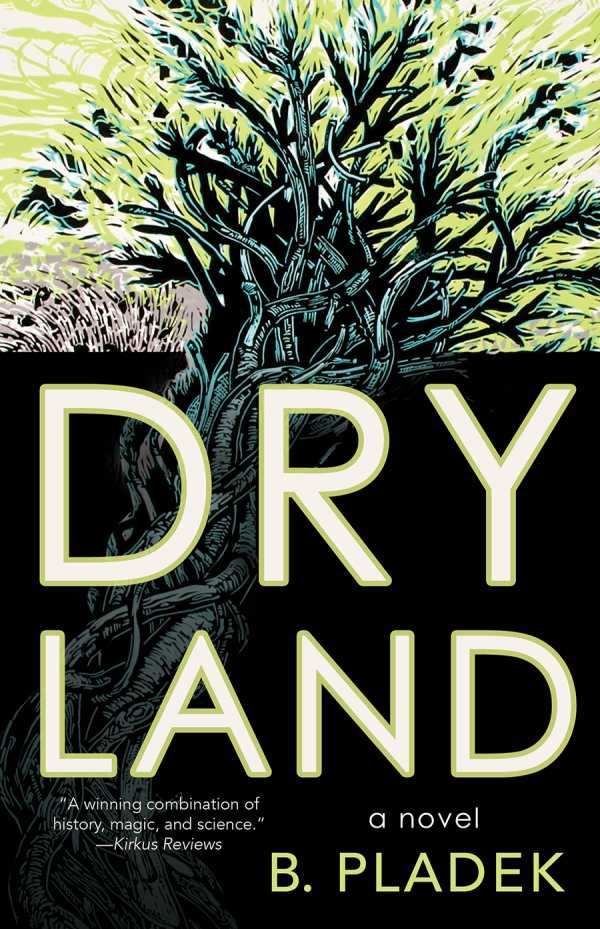Dry Land
As humans wage war on each other and on nature, a visionary Wisconsin forester discovers a poisoned gift within himself in B. Pladek’s historical novel Dry Land.
Rand trained to be a forester after losing his beloved marshland to development. World War I rages abroad, and Rand hides his relationship with fellow forester Gabriel while also trying to shelter his suffragette and socialist-leaning friend Jonna. But when Rand finds out that he helps any seed flourish, his company is sent to the front lines in France with Jonna along to document. Yet Rand’s gift bestows both life and death; it also attracts cruel attention and manipulation from his superiors.
From military training camps to the streets of Paris, Rand tries to learn the extent of his gift so he can use it to restore the ravaged wildlands he grew up loving. His blossoming romance with Gabriel and his military commitments tie him to the human realm, even as Rand begins to believe that he might sacrifice himself to better the world.
Lengthy descriptions of ecosystems occupy the novel, and Rand’s fascination with and love for nature infuses its pages. The turning of the seasons and the migration of birds rivet him, propelling him to harness his gift. The parallels between his desire to heal nature and to understand himself drive the story, which moves like a wild river, full of espionage and escapes. Rand’s internal struggle remains: he tries to make sense not only of his fantastical powers but also of himself.
In this alternate history novel, a gift that promises to restore nature also threatens to destroy a man along with everything and everyone he loves, revealing that redemption may lie in unexpected places.
Reviewed by
Jeana Jorgensen
Disclosure: This article is not an endorsement, but a review. The publisher of this book provided free copies of the book to have their book reviewed by a professional reviewer. No fee was paid by the publisher for this review. Foreword Reviews only recommends books that we love. Foreword Magazine, Inc. is disclosing this in accordance with the Federal Trade Commission’s 16 CFR, Part 255.

